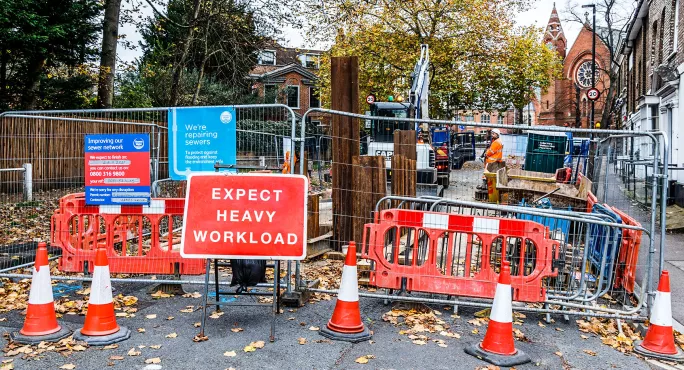SSTA: Teachers ‘denied opportunity’ to consider exams proposals

A Scottish teaching union is raising “major concerns” that the ongoing Hayward review of qualifications and assessment has not involved secondary teachers as much as it should.
In his address to the Scottish Secondary Teachers’ Association (SSTA) annual congress tomorrow, general secretary Seamus Searson will say that teachers have been “denied the opportunity to consider the proposals” - which include reducing the number of external exams that students sit and introducing a Scottish Diploma of Achievement so students can demonstrate more than just academic attainment.
He will say the review will not be informed by secondary teachers’ “deep breadth and knowledge”.
Citing the “alternative certification model” (ACM) that replaced national Scottish Qualifications Authority (SQA) exams when they were cancelled in 2021 due to the pandemic, Mr Searson is also expected to say that the SSTA fears the review will have “unintended consequences for teachers, pupils and schools” and that it will “add to the pressures and workload that they already experience” as a result of “labour-intensive moderation and verification processes”.
- Background: Hayward review calls for an end to exams three years in a row
- Exclusive: Exam reform must be “both principled and practical”
- News: Heads throw weight behind key assessment reforms
In 2021 SQA exams were cancelled and students’ grades were based on “demonstrated attainment”.
Research carried out by the SQA into the 2021 ACM and published in September of last year found that the changes significantly increased teacher workload and were “almost unmanageable” for staff.
The vast majority said their workload was higher than in a normal year, and some even said that the experience of assessing students in 2021 had made them consider leaving the profession.
Only 40 per cent of teachers were satisfied with the system used to determine grades in 2021.
Teachers ‘should have more say in qualifications review’
In his address to congress, Mr Searson - who will also criticise the SQA decision to return to pre-Covid assessment arrangements next year and the “aggression epidemic” sweeping through schools - will say: “The SSTA raised major concerns over the progress of the Hayward review and the lack of engagement of teachers in secondary schools. No time had been allocated in schools for teachers to consider the report so they were denied the opportunity to consider the proposals. The review did not tap into teachers’ deep breadth and knowledge as a result.”
He will add: “The SSTA fears that the review will have unintended consequences for teachers, pupils and schools. We anticipate that teachers will be left to pick up the pieces, and this will add to the pressures and workload that they already experience.”
Mr Searson will say that “complicated, labour-intensive moderation and verification processes will only add to teacher workload”, adding: “We can all remember the pressure and stresses of the alternative certification model created by the SQA only a few years ago. I believe we need to be ready to give a trade union response and say enough is enough.”
The Hayward review of qualifications and assessment published its interim report in March. It called for a better balance between external assessment, including examinations, and other ways of gathering evidence.
It said that students should no longer sit external exams at the end of S4, S5 and S6 and that subject and curricular courses in the senior phase of secondary school should typically last for two years, with students accumulating credits throughout the two-year programme and taking an external exam at the end of the second year.
It also proposed a “Scottish Diploma of Achievement” be introduced to better represent students’ full range of achievements while at school.
The review has twice extended the deadlines to its consultations in a bid to allow wider participation. However, similar concerns were also expressed by the president of secondary headteachers’ body School Leaders Scotland in a recent interview with Tes Scotland.
Julie MacDonald said the profession needed more time to digest what is being proposed and play its part in figuring out how to realise that.
Today, Professor Louise Hayward, who is leading the review of qualifications and assessment, told Tes Scotland: “Teachers have been involved in the independent review group, in the collaborative community groups and each of the three phases of the review through a range of methods.
“In each of the three phases, consultation materials have been sent to schools and colleges across the country. As an example, our phase-three survey received over 500 responses, with the vast majority of these being from schools and colleges. Members of the review have been in schools to experience the process of consultation in action.”
Professor Hayward added: “In response to feedback from teachers, we elongated the time available to comment on both the phase-two and phase-three surveys. In the case of the phase-three survey, it was open for comment from 3 March until the end of April. and the findings are currently being analysed.
“We look forward to submitting our final report and recommendations to the cabinet secretary [for education, Jenny Gilruth] shortly.”
You need a Tes subscription to read this article
Subscribe now to read this article and get other subscriber-only content:
- Unlimited access to all Tes magazine content
- Exclusive subscriber-only stories
- Award-winning email newsletters
Already a subscriber? Log in
You need a subscription to read this article
Subscribe now to read this article and get other subscriber-only content, including:
- Unlimited access to all Tes magazine content
- Exclusive subscriber-only stories
- Award-winning email newsletters
topics in this article



